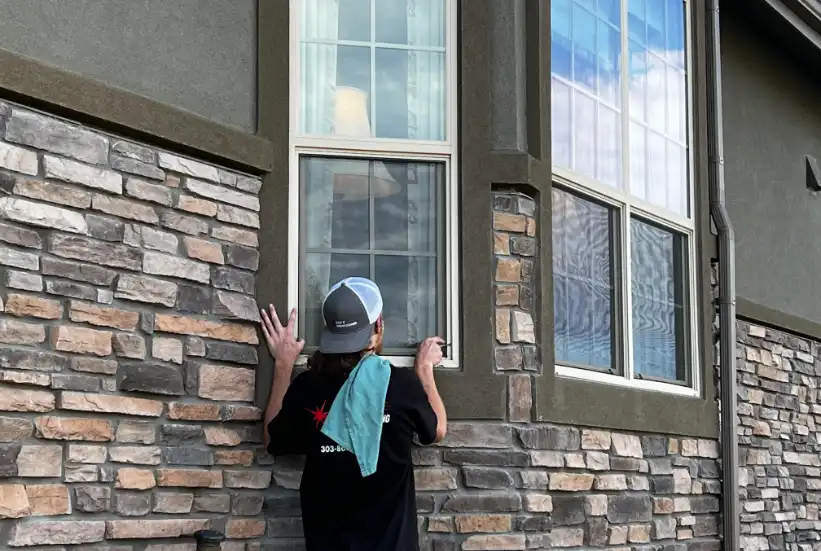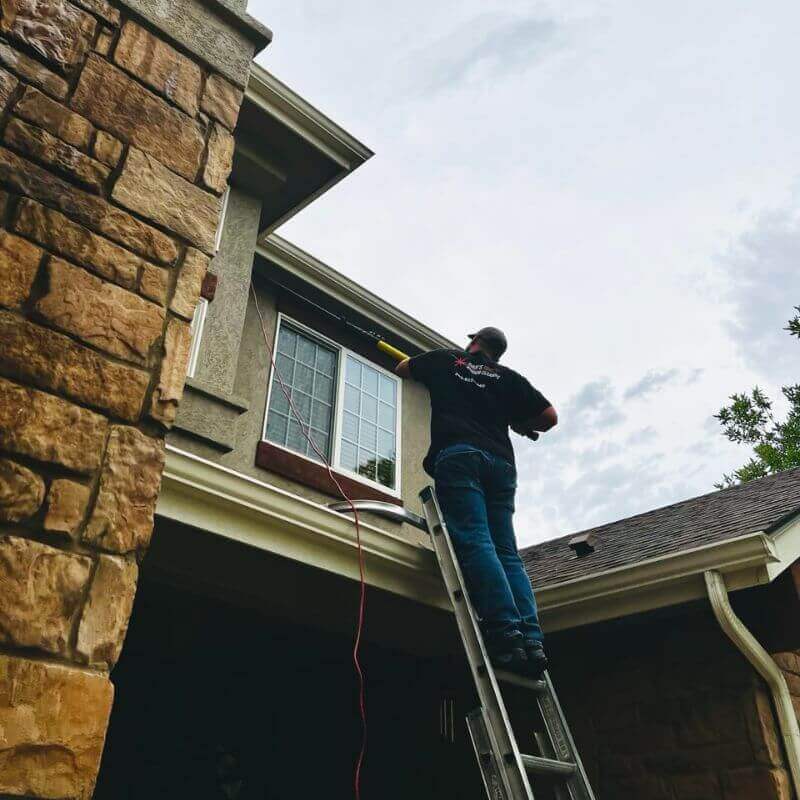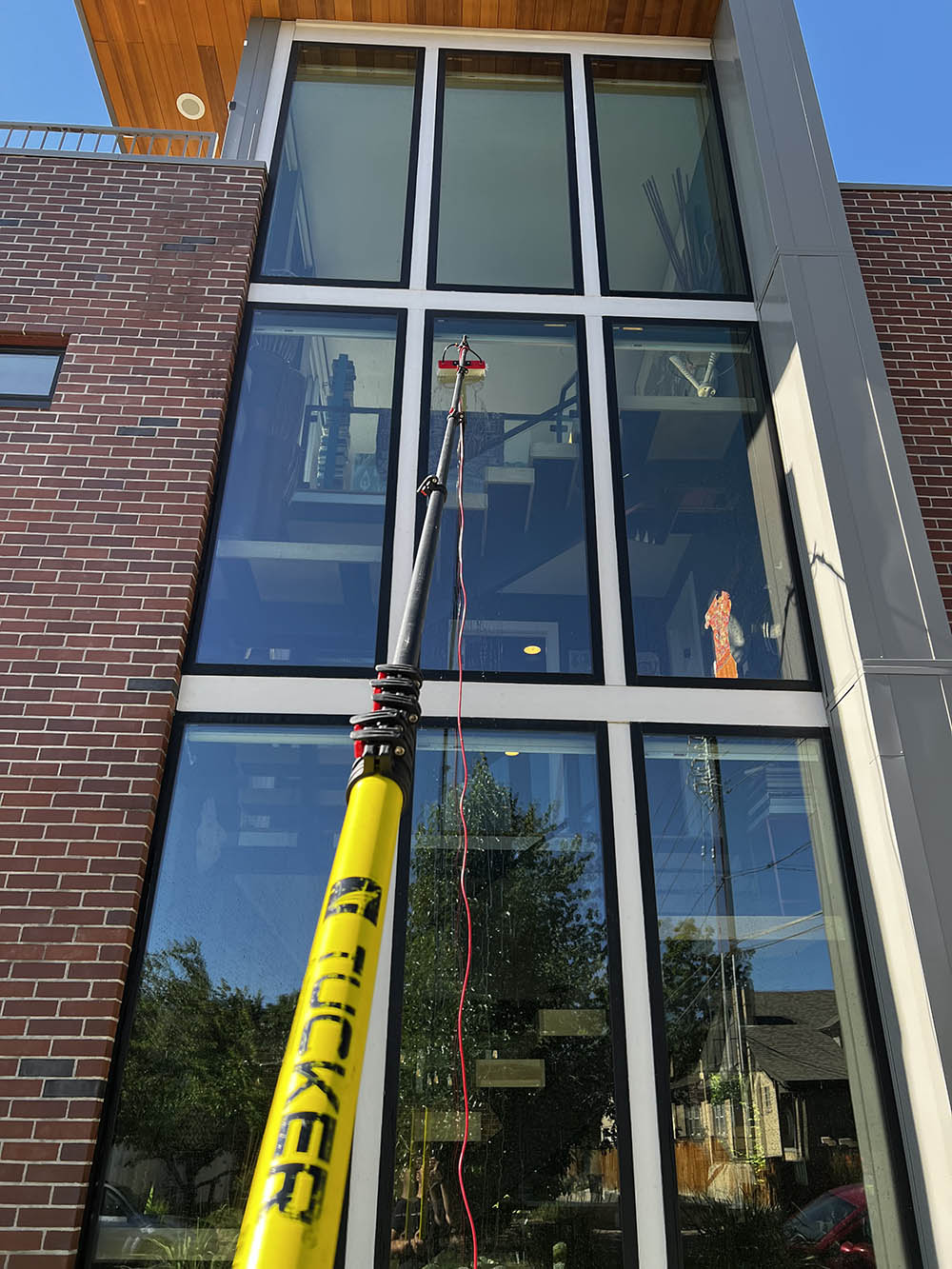How Window Screen Repair Can Improve Indoor Air Quality
Indoor air quality is more significant than you might think. With most people spending roughly 90% of their time indoors, the air circulating inside your home greatly impacts your overall health and comfort. While air purifiers and ventilation systems often take the spotlight, one overlooked aspect of maintaining great indoor air quality is your window screens. When maintained and in good condition, window screens act as a first line of defense against airborne pollutants. But when neglected, they can do the opposite.
This blog will explore how proper window screen repair can enhance your indoor air quality, how to spot damaged screens, and the benefits of professional services like those offered by Dan’s Window Cleaning.
The Science of Airborne Pollutants
Common Indoor Pollutants and Their Sources
Indoor pollutants come in many forms. Common culprits include dust, pollen, pet dander, mold spores, and even fine particles from cooking or burning candles. These pollutants can enter your home from open windows or poor sealing and can quickly accumulate without proper filtration.
For example, pollen from nearby trees and plants can easily invade your living space, causing a spike in allergy symptoms. Similarly, dust mites thrive in unfiltered environments, while mold spores can infiltrate areas prone to moisture. Without a barrier, these particles free-float into your home and settle into carpets, upholstery, and other surfaces.
Health Risks of Polluted Indoor Air
Exposure to airborne pollutants can lead to serious health issues. The Environmental Protection Agency (EPA) cites poor indoor air quality as a top environmental health risk. Issues range from mild symptoms like sneezing and watery eyes to severe conditions like asthma and long-term respiratory illnesses. For individuals with weakened immune systems or chronic conditions, even small amounts of these pollutants can trigger serious reactions.
Window Screens as a Passive Filtration System
Here’s where window screens come in. High-quality, well-maintained window screens act as passive filtration systems. They allow fresh air to flow into your home while blocking larger particles like dust, insects, and pollen. Especially in the spring and summer months when windows are more likely to be open, properly functioning screens are key to maintaining a healthy indoor environment.

Understanding Window Screens: Function and Importance
Types of Window Screens
Window screens are not a one-size-fits-all solution. They come in various materials and designs, each tailored to specific needs.
- Fiberglass Screens are lightweight and affordable, ideal for standard homes.
- Aluminum Screens are more durable and better suited for environments with high winds or potential wear and tear.
- Solar Screens not only block pollutants but also reduce heat gain, making them perfect for sunny areas.
- Pet-Resistant Screens feature sturdy weave material to hold up against paws and claws.
Choosing the material that best fits your environment and needs is the first step in ensuring the longevity and efficiency of your window screens.
Enhancing Air Circulation
Window screens contribute to more than filtration. They enable a healthy exchange of indoor and outdoor air by letting in fresh breezes while trapping contaminants. This consistent airflow is key to reducing indoor air stagnation, which can lead to excess humidity and a buildup of toxins inside your home.
Signs Your Window Screens Need Repair
Not sure if your window screens need attention? Here are some tell-tale signs to look out for.
Visual Indicators
Damaged screens often show visible signs of wear. Torn mesh, small holes, rusty frames, or an overall sagging appearance are clear indicators of screens in disrepair. Even minor damage can impact how well your screens perform their filtration duties, allowing contaminants and pests to enter your home more easily.
Performance Issues
Ever noticed an increase in bugs indoors despite keeping your windows shut? Or perhaps the air feels heavy and less fresh even after opening a window? These issues might mean your screens are no longer doing their job effectively. A damaged screen compromises both your comfort and indoor air quality.
Seasonal Maintenance Checks
Homeowners should aim to inspect their window screens at least twice a year, typically during spring and fall. These seasons mark transitions when pollutants like pollen levels peak, and a well-maintained screen can significantly reduce their entry into your home, ensuring better filtration and fresher airflow year-round.
The Connection Between Damaged Screens and Air Quality
Pollutant Entry
When window screens become damaged, they create small openings that airborne pollutants, allergens, and pests eagerly exploit. A screen with a small tear might seem harmless—but for contaminants like pollen and fine particulates, that small gap is enough to infiltrate your home. This compromises indoor air quality, leaving residents exposed to irritating airborne particles.
Promoting Mold Growth
Damaged window screens don’t regulate airflow as effectively as they should. This can result in moisture buildup, especially around windowsills and indoor spaces. Excess humidity creates a breeding ground for mold, which, when airborne, can compromise the air you breathe daily. Maintaining screen integrity helps prevent these conditions from developing over time.
Pest Intrusion
Beyond pollutants, damaged screens also allow pests like flies, mosquitoes, and bees to enter. These pests can further diminish air quality by introducing allergens like droppings, fur, and bacteria into the environment. Keeping your screens intact is crucial to avoiding these unwelcome intrusions that can affect both health and comfort indoors.

Benefits of Professional Window Screen Repair
Expertise and Tools
Repairing or replacing screens might seem like a straightforward DIY task, but it’s more complicated than it appears. Professional window screen repair services, like those offered by Dan’s Window Cleaning, are equipped with specialized tools and techniques. They can ensure repairs are seamless and durable, tailored to your specific home and window needs.
Time and Cost Efficiency
Attempting to repair screens yourself isn’t always the cost-saver it appears to be. Improper installations can lead to recurring issues, forcing frequent repairs and even replacements. Professional services often provide long-term solutions, saving you time, energy, and future repair costs.
Improved Appearance and Functionality
Beyond the practical benefits, professionally repaired window screens enhance your home’s curb appeal. Well-maintained screens not only filter pollutants but also provide an updated, clean look that complements your windows’ overall functionality.
DIY vs. Professional Repair: Making the Right Choice
When to DIY
Small tears, minor mesh replacements, or loose frame screws are ideal projects for DIY enthusiasts. Hardware stores offer affordable repair kits that include replacement mesh, basic tools, and instructions. With a little effort, you can resolve these minor issues, saving money while keeping your window screens in great shape.
When to Call the Pros
For severe damages like warped frames, extensive rust, or torn mesh on multiple windows, professional assistance is essential. Experts, such as Dan’s Window Cleaning, bring experience and precision to the table, ensuring lasting results. Hiring professionals minimizes errors often made by DIYers, giving you peace of mind and quality window repair work.
Considering Costs
DIY repair kits usually cost between $20-$40, depending on their materials. Professional repairs may range from $50-$200 per window, varying based on the severity of damage and screen type. While DIY is cheaper upfront, professional repairs often prove more cost-effective over time.
Additional Tips for Maintaining Indoor Air Quality
Regular Cleaning
Clean window screens are efficient window screens. Use a soft brush or vacuum to remove dust, pollen, and allergens from the mesh. Ideally, screens should be cleaned every two to three months or whenever dirt buildup is visible. Regular cleaning ensures good airflow and supports a healthier indoor environment.
Ventilation Practices
Maximize your home’s ventilation by opening screened windows on opposite sides of the house to create cross breezes. This promotes steady airflow and helps disperse indoor pollutants. Proper ventilation reduces stale air, controls moisture, and enhances air quality, making your home a more comfortable and healthier place to live.
Invest in Air Quality Monitors
Do you want to ensure your home’s air quality is up to par? Installing air quality monitors can provide real-time data on the concentration of pollutants indoors. These devices help you adjust cleaning and ventilation routines accordingly, ensuring a healthier environment.

Conclusion
The importance of maintaining your window screens cannot be overstated. These unassuming fixtures play an integral role in protecting your home from allergens, pollutants, and pests while promoting proper airflow for a comfortably ventilated interior.
If your screens show signs of wear, addressing the issue promptly through repair or replacement can save you from long-term air quality issues. Services like Dan’s Window Cleaning offer professional expertise and long-lasting solutions to keep your home both beautiful and breathable.
Take a moment today to inspect your screens and consider whether they’re effectively contributing to your home’s health. Whether you choose a DIY fix or professional window screen repairing, maintaining your window screens is a simple yet impactful step to improving indoor air quality and overall well-being. Your future self will thank you.
https://www.google.com/maps?cid=15329728092816842314
